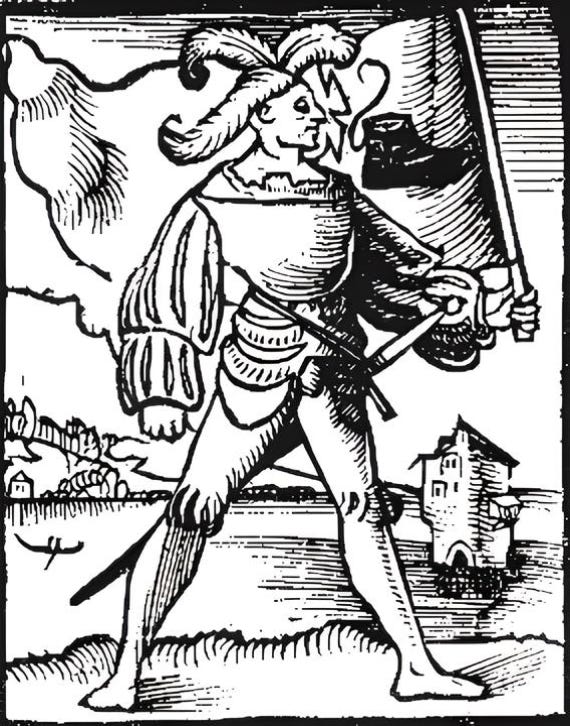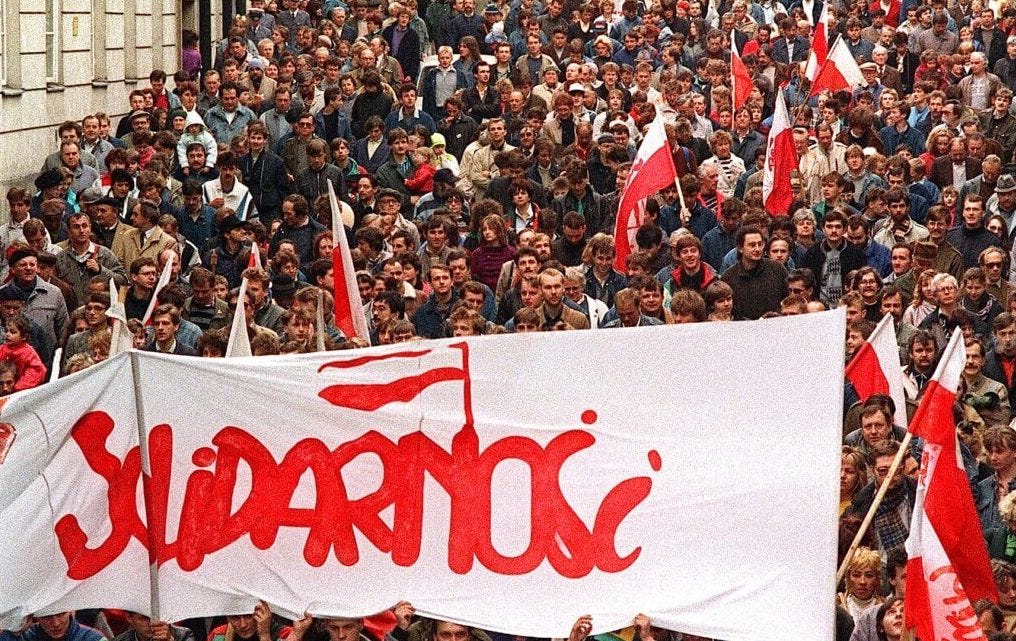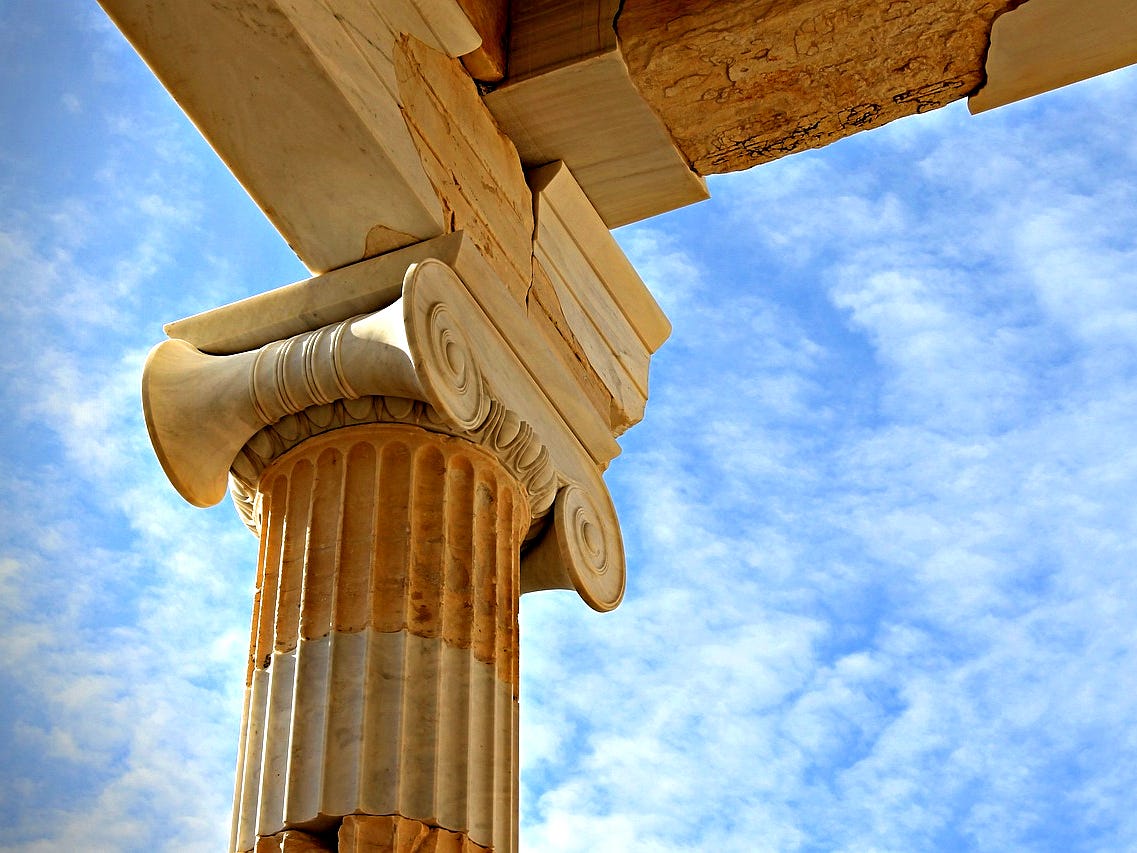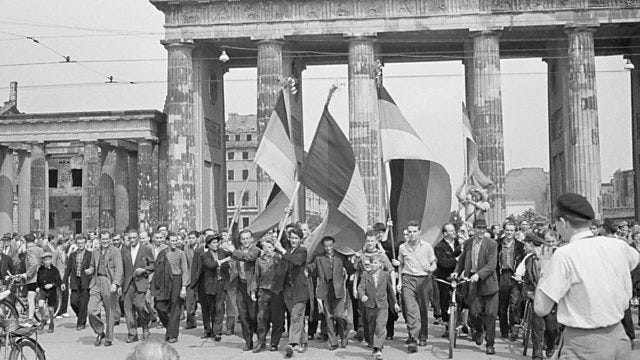Europe: A New Perspective
by Robert Steuckers
Robert Steuckers analyzes the conflict between European peoples and the external systems that have governed them, arguing for a Third Way that rejects ideological domination, promotes regional autonomy, and seeks to reclaim Europe’s geopolitical and cultural independence.
This essay was originally published in The Scorpion, issue 9, spring 1986.
Firstly, can we establish that there is a “European history” and if there is, in what way do we see it? As a history of the European peoples or as a history of the structures which have ruled over the territories today considered to be part of Europe? The question may appear novel, complex or even purposeless. The seeming simplicity of the question disguises a real complexity. The novelty of the question may be overshadowed if we do not understand the purpose we have in posing it.
To pose the paradigm of European history we immediately confront a choice: are we for peoples or for structures? For peoples or for systems? Through this crucial opposition we can arrive at an understanding of the antithesis of philosophy and of the history of political ideas. The word peoples can here be replaced by the word mythos and the word structures by the word logos. The one implies an awakening of the ‘irrational’ within, the mobilisation by means of a sense of history and destiny. The other implies a ‘rational’ management. On the other hand, it is possible to defend peoples by referring to a logos which transcends all institutions which have become unjust despite their rooted origins. Reversing the coin we can defend structures by creating artificial or alien myths. The fact is, however, that structures are ephemeral and peoples survive the structures imposed upon them.
For a European, to take sides with peoples against structures is to make a clear political decision. It is to reaffirm the immemorial tradition of revolt: of the peasant rebellions against the clergy, the dynasty or the false aristocracy: in short, all arbitrary power which seeks to disestablish ancestral laws. For the African, this would signify a struggle against the bourgeoisies and military tyrannies serving the interests of neo-colonialism. For the Latin American, it would mean fighting against the oligarchies dependent on the Yankee economic machine. In order to understand this, we should remember our own past: the uprisings of Arminius, Marbod and Civilis against Rome; the rebellion of Witukind’s Saxons against the Carolingian officers and an alien clergy; the stubborn resistance of the Frisians; the tragic struggle of Stedinger in Westphalia against the manipulation of ancestral laws; Jacqueries in Picardy; the revolt of Zannekin on the Flemish coast; the peasant revolts in England, Bohemia and Hungary and in sixteenth-century Germany; the Vendée uprising against the French Republic and so on. All episodes in European history, our history, in which people rise against oppressive systems which are working to unseat the old laws and traditions. Parallels outside Europe are not difficult to find.
To take sides with structures against peoples means for the European today to attach oneself to one or other of the old ideologies, originally inspired by religion but today more commonly seen in a fully secularised form. Effectively it means to champion the cause of the new Rome: a ‘Roman Empire’ stretching beyond the Latin world, to defend the liberal economic order centered in Washington, or, on the other hand, to work for the communist order centered in Moscow, operating well beyond the Slavic world. The communist model is seriously discredited — much more so than the Western one, but there is a new development in the phenomenon of sects which offer to an alienated youth in Europe a ‘solution’ which is far from being for the good of our people. The Moon sect, for example, (the World Unitarian Church) enjoys a growing influence in Western Europe. In France the influence of the Moon sect extends to conservative and intellectual circles. Adorned in the garb of mythical inspiration, the Moonic religion is in fact in the service of the right-wing economic-liberal “West”. The influence of such a group on potential rebels is deleterious in the extreme.
If we take sides with a Europe of the peoples against a Europe of institutions, of managers, where do we begin tracing the origins of European history? Not with the Empire of Augustus but much earlier, with the appearance of the Indo-European in pre-history. Originating from one central European homeland (as the studies of the German Lothar Kilian and the Frenchman Jean Haudry have shown), these Indo-Europeans influenced a European and extra-European periphery, which were themselves influenced by other peoples. The early history of Western Europe and the merging of Megalithic culture with that of the Indo-Europeans has been exhaustively examined by the French archeologist Roger Joussaume; and I do not imagine that a British audience will need to be reminded of the revolutionary thesis of Colin Renfrew, according to which the Mediterranean area is in human terms the product of peoples from the Indo-European matricial homeland and peoples from other “wombs”, Hamitic, Pelagic and Semitic. The “Latin Race”, according to Renfrew, is the product of an admixture of these three principal components. In the North East of Europe we can observe a similar synthesis of the Indo-European and Finno-Ugric groups. Notwithstanding, the crucial factor which constitutes the European heritage is the fact of our linguistic common heritage.
Present since the beginning of so-called ‘historical times’, the linguistic heritage was reinforced by the Germanic migrations. Indeed, the Mediaeval world and unity correspond essentially to the order of the Teutonic settlements, the achievement then of the last tribes to issue from the original Indo-European homeland. The Mediaeval order combined the Roman notion of universal Empire and Germanic social and political concepts (chivalry, feudalism, corporations).
The Indo-Europeans are therefore at the heart of European history, the canvas, so to speak, upon which our history is painted; but referring to the Indo-Europeans in this way is insufficient, for it involves no political deductions. The prime question is this: what is the representative organisational feature (both historical and mythical) of the Indo-Europeans? Like many other peoples who began with a matriarchal order (Bantus, American Indians, Hamito-Semites), they originated as self-ruled communities, communities ordered on principles of which those communities were themselves the generators. It is in this sense that the anthropologist Dumézil employs the term ‘Indo-European ideology’ and Jean-Paul Roux the term ‘primordial religions’ when he discusses the Turco-Mongols. Spengler and Toynbee speak of original self-governing communities, able to subsist in a latent state beyond the pseudomorphosis of the institutions of the day, that is to say beyond all superficial modification brought about by (non-lasting) ideologies, ideologies brewed by all elements which are detached from matriarchal culture, all elements that are outsiders to a type of world in which peoples generate their own autonomy. From this perspective, it is possible to envisage a polycentric paradigm of human institutions and not, as is the case with today’s prevailing ideologies, a reductionist, monocentric universalism. If we define universalism in this way, we should be at pains to distinguish it from universality, a perception of the world, which, on the contrary, admits to a limitless diversity, in Herder’s words: “a garden of multifarious flowers”.
Political independence based on a ‘matricial space’ (espace-matrice) are the two political axioms which the Indo-European inheritance gives us, be it in the form of the ‘nouvelle pensée’ of French New Right, the vision of Taine, Renan or Houston Chamberlain, the German philologists even down to the socialist tradition, particularly in Germany and Denmark, a tradition which inspired Engels in the writing of his work on the origins of the family, private property and the state. If we recall all such ideological and historical traditions, we shall be compelled to admit to the inanity of the Left/Right polarity which has perverted political debate since the French Revolution. Political theory and action can be summarised in its essence as relating to three issues: the safeguarding of a defined human population, (concomitantly) the securing of political independence at all levels and finally the protection of the living space of the people against aggression. These have always been the political realities from the time of the earliest human settlements to the contemporary age of the superpowers, despite the universalism of the ideological rhetoric of the spokesmen of the superpowers.
There are many examples of political systems adopting ‘reductionist’, ‘anti-traditional’ policies: the Spanish Empire, Jacobin France with its artificial division of France into departments, and more recently the United States with its militantly universalist dogma (and despite the importance of ethnicity in the Soviet system, there is no denying that the Soviet Union imperils many ethnic groups and threatens to totally extirpate the heritage of the Baltic nations).

The European matrix, along with the peripheries under European influence and which have in turn influenced Europe, constitutes a living space on the Eurasian continent. The Eurasian landmass holds several different focuses of civilization: today there is the Chinese world, the Hindu world and Islam to prove the point. If China and India perceive themselves as unities, and in the case of India unities able to contain considerable diversity, if Islam is a force in the world despite its divisions, Europe today is made up exclusively of divisions: we have the north/south divide, the East/West cleavage, the German/Slav antagonism, the Mediterranean and Nordic division, the old antagonism between Western Christianity and the Orthodox church, the division between liberal and authoritarian, between one nation-state and another and so on.
The American historian Craig observed that the Holy Alliance created in 1815 mainly by Metternich’s diplomacy, whatever we may wish to say about it, had at least the merit of providing a political concept enabling the adherents to resolve common problems relating to our sub-continent, our motherland. The Industrial Revolution and the social dislocation it caused reduced these efforts to nothing. Conservatives often accuse the revolutionary movements of the nineteenth century of having destroyed the consensus of the Holy Alliance in favour of an unrealistic humanitarian Utopianism. In fact, the national revolutionaries of 1832 in Germany who made the declaration of Hambach remained firmly in the European tradition. There were not only Germans, but French, Polish and Greek representatives at Hambach. It was rather the contradictions and nostalgia of the Prussian rulers and the Roman Pope which made the Holy Alliance into a tool of reaction and little more.
The will to create a European order has been with us for a long time. It was in Bismarck’s mind when he proposed to the Kaiser the establishment of a central European customs union. The Locarno Pact of 1938 was an abortive attempt towards the same thing. What frustrated attempts to effect a European zone was primarily colonial expansion: British imperialism helped to fuel the colonialism of Germany, France, Belgium and Holland, a tendency which caused the nations concerned to look away from Europe and at the same time heightened European fragmentation as European nation-states entered into fierce commercial and military competition. In retrospect we can see that this fragmentation was the first manifestation of a European decline, however paradoxical this may seem; for while European states armed against each other, the United States had devised a doctrine of political power, the famous Monroe Doctrine of 1823 which can be summarised by the simple formula: the Americas to the United States! No European power would be allowed to establish itself anywhere in the New World. Monroe had devised the principle of non-intervention in large areas of geographically defined living space. Europe did not follow the example of the United States, as it could have done, by pronouncing its own ‘Monroe Doctrine’. Therein lies the principal cause of the decline of Europe in the succeeding years.
There were those clear-sighted enough to understand the importance of the Monroe Doctrine. For example, the Austrian minister Johann Georg Hülsemann, who argued for the adoption of a European declaration of non-interference similar to the Monroe Doctrine. His plea went unheeded. Later there were Carl Schmitt and Haushofer who argued in the same vein, but all to no avail. Among socialist intellectuals today there are those who argue for a ‘Europeanisation of Europe’: Peter Bender in Germany, Brugsma and Rik Coolsaet in Flanders. Bender’s book was described by Craig as one of the most important books to appear in Europe in the last few years but it remains largely ignored. The European weakness is to continue to cling to the fictitious or divisive judicial legal “rights” of the European statelets and to overlook the significance of geopolitics and compact space in politics. The Americans and the Soviets suffer from no misconceptions of this kind, which explains why Europe remains firmly theirs and not ours.
To initiate a ‘Third Way for Europe’ is to take two essential factors into account: a sense of belonging to a millennia-old civilization, a civilization produced by a population originating in the heart of the sub-continent of Europe in which the contribution of that population has been the determining factor of our history. The second factor we have to grasp is the geopolitical significance of Europe, to realise the axes of power which operate in Europe and from whence they came. The two factors are therefore the human factor (the history of the Europeans) and the geographic factor (where we are placed in relation to the forces of non-European power). It is in respect of these two prime factors that we must design the Third Way which should be ours in the twenty-first century.
In economics, the Third Way necessitates a repudiation of the central axiom of classical liberalism: individualism. The Third Way reasons in terms of peoples, of collectivities possessing a historical memory. By rejecting individualism in economics, the economy is put to the service of historic collectivism: it is the instrument of the perpetration of a people’s survival. The rise of neo-liberalism in recent years accompanies a regression in communal solidarity and a dislocation of national economies in favour of individuals or organisations whose interests are far removed from those of communal economies, indeed are generally opposed to them. People removed entirely from any original community constitute a new class of well-to-do, a class basking in the profitable success of the ‘new’ conservatism. This is not to imply any affection for the Keynesian model of a “welfare state” which sets up bureaucracies every bit as much alien to the communities they are supposed to serve. The fact that such ‘statism’ devises ‘constructs’ which are wholly unrealistic has been well argued by neo-liberals like Hayek and Popper. The “left-wing” alternative to neoliberalism inspires few.
There already exists, however, an impressive array of alternatives in the economic field. The most persuasive, in my opinion, is that of François Perroux, who has developed the important thesis of the “self-centred, semi-autarchic space”. This thesis has been elaborated by André Grjebine. The Czech Ota Šik has pointed to ways in which the people themselves may be directly responsible for economic management. In the works of Šik and Perroux, the factors of population and space play an essential role. Absent is the preconception of the human individual as an abstraction or a theory which claims to be applicable to the entire universe.
In addition to this revision of economic doctrines and the philosophical and theological doctrines which subsist with them, we must prepare a sound European military doctrine which will be in total contradiction to the presently existing East/West divide. The destiny of Europe lies neither with NATO nor with the Warsaw Pact. The neutral states of Sweden, Finland, Ireland, Switzerland, Austria, Yugoslavia and Albania constitute the model which we should follow so far as military alliances are concerned. Sweden and Switzerland have been neutralist nations for many years whilst the others have only recently acquired their independence. Sweden is a particularly good model, for that country aims at complete autonomy in armament construction: Volvo, SAAB, etc. This autonomy must be raised to the European level. Switzerland is particularly interesting as a model of territorial defence. Every Swiss citizen is armed. This is in accordance with a time-honoured Celtic and Germanic tradition, according to which the whole people is responsible for its own defence. This is genuine democracy. Jean Charles de Sismondi deplored the passing away of these traditions outside Switzerland: no more English yeomanry, no more Flemish schutterij, no more Garde Civique in Belgium, no more French Garde nationale...
More examples: Finland has managed to maintain self-respect and autonomy in face of the powerful foe to which she surrendered in 1944. The position of Finland has inspired the militants of Solidarność. By accepting Soviet proposals that Austria become neutral, the Austrian Republic was able to rid herself of foreign troops in 1955. Despite the arguments of General Spannocchi based on an Alpine defence, Austria does not maintain a credible capacity of any kind: but this has not prevented the Austrian Chancellor Kreisky from developing an alternative political perspective— notably towards the Middle East. The Yugoslavian political system seems to be ‘Proudhonian’ rather than Marxist. For its part, Marxist Albania has shown that autarchy is feasible, even for a small state without significant natural resources.

The neutralist ‘temptation’ is a reality in the East as well as in the West. I have already mentioned the Polish Solidarność; there is also the Hungarian willingness to open a dialogue on the issue — for example, on the part of political thinkers like Szűrös; there are the repeated attempts on the part of the Romanian government to distance Romania from the other Warsaw Pact states, the opposition to missiles hinted at in certain circles in Bulgaria. Here in the ‘Western’ zone we have the Gaullist distancing from NATO and the Force de frappe1; the pan-Hellenism and non-alignment of the Greek premier Papandreou; the non-alignment on the British ‘Left’; the two-and-a-half million people in Holland who have signed a petition to refuse permission to NATO to install nuclear missiles on Dutch territory; the peace movement in West Germany (and covertly in East Germany) with its strongly neutralist flavour. In the Federal Republic of Germany, many military strategists have elaborated alternative defence strategies to that envisaged by NATO theoreticians. Lieutenant-Colonel Mechtersheimer, for example, has questioned a strategy which places Germany at the centre of any potential nuclear conflagration. It is also worth mentioning in this context the polemicist Horst Afheldt, who has developed the ideas of the French General Brossolet, who devised a system of military defence using “maillage” (deep mesh defence complexes) and “techno-commandos”. I do not claim that these theories are unassailable but they go to show that there are many, even in the military service of NATO, who are thinking in terms of a military strategy based on the needs and aspirations of European security and European living space.
The Third Way for Europe is thus to be clearly conscious of the geopolitical destiny of Europe; to perpetuate the human adventure begun by the first Indo-Europeans; to take Europe out of the two existing military blocs on a rigid policy of neutrality with respect to American/Soviet confrontation, at the same time ensuring that the European sub-continent can be protected by military self-sufficiency, creating of Europe an economic bloc capable of supplying its own needs, an organic economic space more supple and adaptable than the Common Market.
To choose a Third Way is to give ourselves an entirely new economic system based on the continent of Europe, an economic system which is the servant of the people and not the master, and not obeying the theories of money-hungry elites. To guarantee the peace and security of the continent it will be necessary to provide a completely new kind of military service capable of defending the continent as such and also able to defend each square mile thanks to a properly armed people’s militia, a militia equipped to deal with tanks and with aerial attacks.
The creation of such a Third Way demands a new historical vision too, one able to cope with the argumentation of the partisans of structures in the name of the ancestral laws. That signifies the interpretation of European history in the light of popular revolt. Whilst the Swiss were able to establish a peasant federalist republic, the Low Countries and Germany were not able to establish such systems in the sixteenth century. The revolutions in France, England, Ireland, the Tyrol and Bulgaria, which in subsequent centuries strove in this direction, all failed as well and their defeats helped to consolidate the victory of systems over peoples.
To respect the diversity of Europe and as a solution to the diverse aspirations which these various rebellions indicate, Europe should include federalist constitutions. Such constitutions would not menace the civilizational unity of Europe — far from it. It is rather the plurality of nation-states which has undermined the civilizational unity of Europe and come close to destroying it, in the name of national chauvinism.
The regions of Europe would constitute a Great European Federation, capable of fulfilling the destiny of Europe. The regions of Europe might cross some of the old ‘trouble spots’ of national antagonism: the old conflicts should and could be overcome by the existence of a new European federation in which the Corsicans, Basques, Catalonians and the rest would no longer exist in conflict with the nation-state to which they belonged.
The Third Way exists in Europe already at the level of theory. What it needs is militants.
Editor’s note: The Force de frappe is France’s nuclear strike force, established under President Charles de Gaulle in 1964 to ensure the country’s strategic independence. De Gaulle believed that France needed its own nuclear deterrent to maintain national sovereignty and avoid reliance on other powers, particularly the United States, for its security.





Great essay, but only for somebody who still lives in the 80s or 90s. Today more and more people are aware that nothing but a miracle can save Europe. The Idea of traditional Europe will survive, but Europe of anti-tradition will die soon. It should be left to it's own devices to clear up the space for something New.